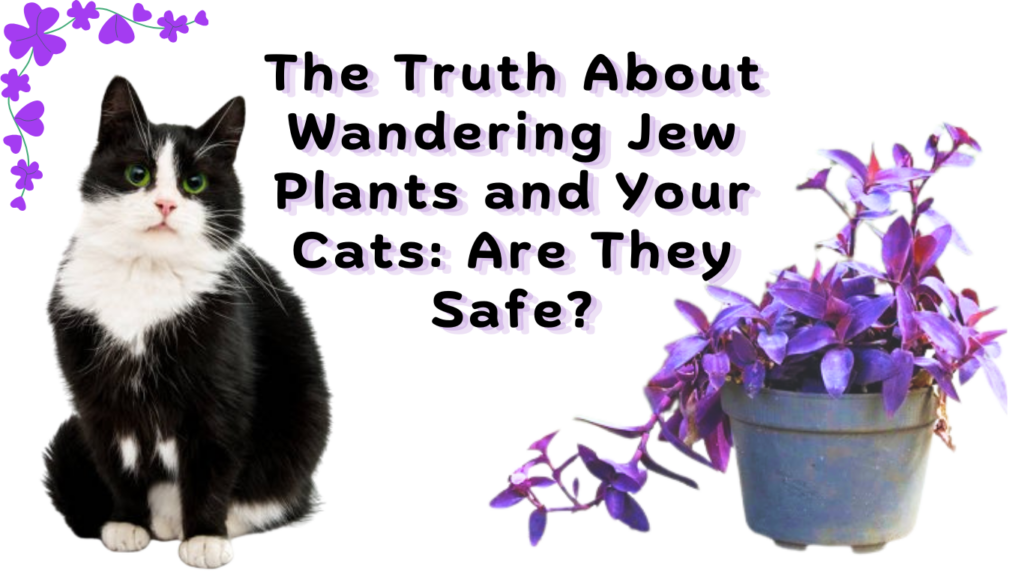The Wandering Jew plant, with its vibrant purple and green leaves, is a popular houseplant that adds color and texture to indoor spaces. However, for cat owners, there’s an important question: is it safe for cats? Unfortunately, the Wandering Jew plant can be harmful to cats if ingested. Here’s what you need to know about the plant and its effects on our feline friends.
What is the Wandering Jew Plant?

The term “Wandering Jew” actually refers to several species of plants in the Tradescantia genus, including Tradescantia zebrina and Tradescantia fluminensis. These plants are commonly grown indoors due to their striking colors and relatively low maintenance needs. They thrive in medium to bright light and can be grown in hanging baskets, making them popular among houseplant enthusiasts.
Are Wandering Jew Plants Toxic to Cats?
Yes, the Wandering Jew plant is considered toxic to cats. While it is not typically fatal, it can cause skin irritation and gastrointestinal issues if ingested. The plant contains sap that is known to be mildly toxic, and contact with or ingestion of this sap can lead to unpleasant symptoms for cats.
Symptoms of Wandering Jew Poisoning in Cats
If a cat comes into contact with or ingests parts of a Wandering Jew plant, it may experience the following symptoms:
- Skin Irritation: The sap can cause dermatitis or skin irritation, leading to redness, itching, or sores on a cat’s skin. Cats with sensitive skin are more likely to be affected.
- Oral Irritation: If the plant is chewed, it can cause irritation in the mouth and throat, leading to drooling, pawing at the mouth, and general discomfort.
- Gastrointestinal Issues: Eating parts of the plant may lead to nausea, vomiting, and diarrhea, which can cause dehydration if symptoms persist.

What to Do if Your Cat Eats a Wandering Jew Plant
If you suspect your cat has chewed or ingested a Wandering Jew plant, take the following steps:
- Observe for Symptoms: Keep an eye on your cat’s behavior. Look for symptoms like drooling, vomiting, or signs of skin irritation.
- Rinse the Mouth and Skin: If you notice any sap on your cat’s skin or mouth, rinse it off gently with cool water to prevent further irritation.
- Contact Your Vet: For persistent symptoms, contact your veterinarian. They can provide advice or administer treatment to alleviate discomfort and prevent complications.
Safer Alternatives for Cat-Friendly Homes
If you’re a cat owner who loves plants, there are plenty of safe alternatives that won’t pose a risk to your pet. Some non-toxic houseplants include:
- Spider Plants: These are easy to grow, and cats often love to play with their long, arching leaves.
- Boston Ferns: A lush, non-toxic option that adds a splash of green without the worry.
- Areca Palms: Known for their tropical look and cat-safe reputation.
While the Wandering Jew plant’s beauty makes it an attractive addition to the home, it’s important to remember its potential dangers to cats. Even though the plant isn’t highly toxic, the irritation it can cause is uncomfortable for your furry friend. Consider switching to cat-safe plants or keeping your Wandering Jew plant out of reach to ensure a safe environment for your pets.
For peace of mind, always research new plants before bringing them home to ensure their pet-friendly.












